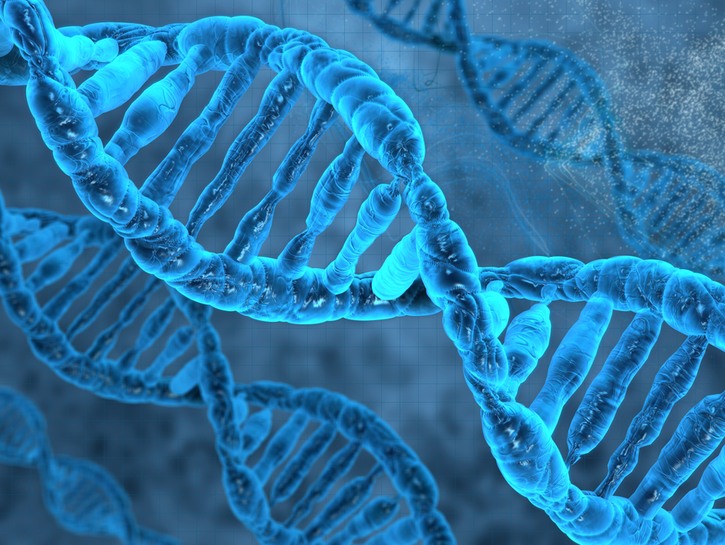A lot of us are curious about what our DNA reveals about our past, present, and future. Not all families are great at passing down their family history or talking about what kind of conditions they may be genetically predisposed to. Thankfully, these days there are websites that offer genetic testing requiring just a bit of saliva – no needles, no blood!
Both 23andMe and Ancestry.com offer packages where you send off a little spit, the companies work their DNA magic, then send you back a profile based on the lab results of your DNA. But what’s the difference, and which is better?

AncestryDNA
Ancestry.com started as a publishing company, publishing magazines about genealogy and ancestry. As the internet expanded and their records migrated to online storage, Ancestry Publishing launched Ancestry.com, a service that allowed families to buy CD-ROMs outlining their family history. While continuing to expand internationally and digitize more records, Ancestry.com began to offer DNA testing by the name of AncestryDNA, expanding their database by millions.
AncestryDNA is a $79 service that tests a saliva sample for 700,000 genetic markers and analyzes your ethnic makeup across 150 regions. The test also provides details about potential distant relatives, with the ability to connect with those who share elements of your genetic profile.
23andMe
23andMe is a younger company, founded in 2006 with the mission of helping people answer their questions about the human genome and what kind of insights genomes reveal. The name is a reference to the 23 pairs of chromosomes in human cells. In 2015, 23andMe got permission from the FDA to sell directly to consumers online. To date, they have genotyped more than 3 million people worldwide.
23andMe offers two Personal Genetic tests: Ancestry ($99) and Health + Ancestry ($199). The cheaper Ancestry service analyzes, compiles, and summarizes the results of a DNA saliva sample and issues reports on your DNA’s origins and your family history. Whereas the more expensive Health + Ancestry service provides 75+ reports on what your genetics reveal about health risks, traits, carrier status for certain conditions, wellness, as well as ancestry

Which Service Is Better?
While 23andMe and AncestryDNA are similar concepts, the information they’re able to return is slightly different. AncestryDNA is more sharply focused on tracing a person’s familial history and matching DNA to family, whereas 23andMe is designed for health screening and providing reports on how your genes influence your medical risk factors.
If You’re Interested In Ethnicity
Both 23andMe and AncestryDNA will send a breakdown of your ethnicity estimate, based on the regions they have available to test for. 23andMe currently only has 31 regions to test from, while AncestryDNA uses 150. So if you’re looking for a more accurate profile, AncestryDNA is your best bet. That said, 23andMe’s ancestry reports are a little more extensive, in that they also include interesting information like Ancestry Composition (which world regions your genes align with), haplogroups (common ancestor groups), and Neanderthal variants. It’s also worth noting that both company’s databases expand and improve at making predictions with more participants, so the estimates are getting more accurate all the time.

tovovan/Shutterstock
If You’re Interested In Family Matching
Since AncestryDNA is based in genealogy and has a long history of tracking families, it’s no surprise that it beats out 23andMe for linking up long lost families. Both AncestryDNA and 23andMe give you the option of connecting with other participants, but of course it only works if you happen to have distant family that’s also been tested and have agreed to make their results available.
Since the initial premise of Ancestry.com is establishing family connections, the kind of participants you’ll find with AncestryDNA are much more likely to be interested in reaching out to family members than the 23andMe crowd. Ancestry.com also has that famous family tree feature, which lets you search for possible matches using their leaf hint system.
If You’re Interested In Health Screening
This is an area where 23andMe unquestionably dominates. AncestryDNA doesn’t offer health screening based on DNA, while 23andMe gives you a fairly extensive set of reports. Divided into four categories, 23andMe gives you insight on your carrier status for genetic disorders, what physical traits your genetics predict, the very general state of your health compared to others, and what kind of diseases and disorders you may be prone to.
Bottom Line
Which test you’ll find most useful depends on precisely what information you’re looking for. While both tests include insight into ancestry, 23andMe offers more insight into your medical and hereditary profile. AncestryDNA is a better tool for exploring your family lineage and connecting with distant family members. Because 23andMe can help you predict what your future health might look like, the bottom line is that 23andMe is more future-centric while AncestryDNA focuses more on the participant’s past.
